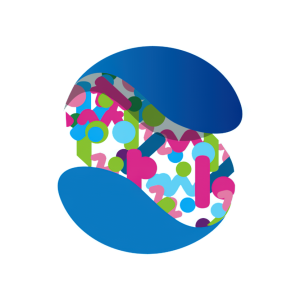Seres Therapeutics Reports Fourth Quarter and Full Year 2020 Financial Results and Provides Business Updates
Seres Therapeutics (MCRB) reported its Q4 and full year 2020 results, confirming progress in its microbiome therapeutics portfolio. Key highlights include the advancement of SER-109 towards a Biologics License Application (BLA) and achieving target enrollment for the SER-287 ECO-RESET Phase 2b study. SER-109 demonstrated an 88% sustained clinical response in a Phase 3 study for recurrent C. difficile infection, with a significant reduction in recurrence rates. The company enters 2021 with a solid financial position and a robust pipeline targeting multiple diseases.
- Achieved 88% sustained clinical response with SER-109 in Phase 3 study for recurrent C. difficile infection.
- Positive interim results from SER-109 Phase 3 study support BLA submission.
- Target enrollment met for SER-287 Phase 2b study in ulcerative colitis, with topline results expected mid-year.
- None.
Insights
Analyzing...
Seres Therapeutics, Inc., (Nasdaq: MCRB), a leading microbiome therapeutics company, today reported fourth quarter and full year 2020 financial results and provided business updates.
“Seres continues to make progress executing against our top corporate priorities. We are enrolling our open label study to support a Biologics License Application (BLA) for SER-109, a potential first-ever FDA approved microbiome therapeutic. We have also advanced our clinical pipeline and expanded our core microbiome therapeutic drug discovery and CMC capabilities,” said Eric Shaff, President and Chief Executive Officer of Seres.
“We enter 2021 with a strong balance sheet, poised to continue leading the microbiome therapeutic field. Our pipeline spans infectious diseases, inflammatory diseases, and oncology, and we look forward to continued progress during the year, including our development stage pipeline candidates and earlier stage drug discovery efforts. We are pleased to have achieved target enrollment for the SER-287 ECO-RESET Phase 2b study and look forward to obtaining topline results mid-year, an acceleration compared to our prior projections. Our SER-287 program is another embodiment of our mission to develop product candidates with the potential to fundamentally transform patients’ lives by providing substantial clinical benefit over today’s standard of care,” concluded Mr. Shaff.
Program and Corporate Updates
SER-109 Phase 3 ECOSPOR III study in recurrent C. difficile infection: SER-109, an investigational oral, live microbiome therapeutic, achieved a high rate of sustained clinical response in our Phase 3 clinical trial by repairing the disrupted microbiome in patients with recurrent C. difficile infection (CDI).
In August 2020, Seres announced positive topline interim results from the SER-109 Phase 3 study, ECOSPOR III. The Phase 3 study (ClinicalTrials.gov identifier: NCT03183128) is a multicenter, randomized, placebo-controlled study that enrolled 182 patients with multiply recurrent CDI. Patients were randomized 1:1 to receive either SER-109 or placebo after standard of care antibiotic treatment. Final end-of-study 24-week results reiterated that ECOSPOR III achieved the study’s primary endpoint and demonstrated a sustained clinical response rate of approximately
Following the topline Phase 3 study results, the FDA reaffirmed its prior position regarding the efficacy requirements to support an SER-109 BLA submission, which were exceeded by the positive SER-109 ECOSPOR III study results, as well as its prior position that the safety database should be at least 300 subjects. Seres believes that ECOSPOR III will be a single pivotal efficacy study supporting product registration.
In October 2020, Seres presented SER-109 Phase 3 topline results along with additional clinical data at the virtual American College of Gastroenterology (ACG) Annual Scientific Meeting. These new data demonstrated that the 12-week treatment difference between SER-109 and placebo remained consistent with the 8-week treatment difference. In addition, subsequent 24-week data demonstrate that the clinical effect of SER-109 is durable.
In January 2021, at the Keystone Symposium, Seres presented Phase 3 microbiome and metabolomic endpoint data that provide mechanistic support for the SER-109 efficacy observed. The study data demonstrate that SER-109 bacterial species rapidly engraft into the gastrointestinal tract; engraftment was observed as early as 1-week post-treatment and was durable through eight weeks, confirming the biological activity of SER-109. SER-109 administration also rapidly shifted the gastrointestinal metabolic landscape, including a significant decrease in primary bile acids and an increase in secondary bile acids, providing a mechanistic basis for inhibition of C. difficile spore germination and vegetative growth.
Seres is conducting an ongoing SER-109 open-label study in patients with recurrent CDI (ClinicalTrials.gov identifier: NCT03183128), which also admits patients with a single recurrence of CDI, to expand the SER-109 safety database. The Company continues to make progress activating new clinical sites and enrolling subjects into the study at clinical sites across the U.S. and Canada. Additional information is available at serescdiffstudy.com.
SER-287 Phase 2b ECO-RESET study in ulcerative colitis: SER-287, an oral microbiome therapeutic candidate consisting of a consortium of highly purified Firmicute spores, is designed to normalize the gastrointest
FAQ
What are the key financial results for Seres Therapeutics in 2020?
What is the significance of SER-109 for Seres Therapeutics?
When are the topline results for the SER-287 study expected?
What were the results of the SER-109 Phase 3 study?
How is Seres Therapeutics positioned entering 2021?







